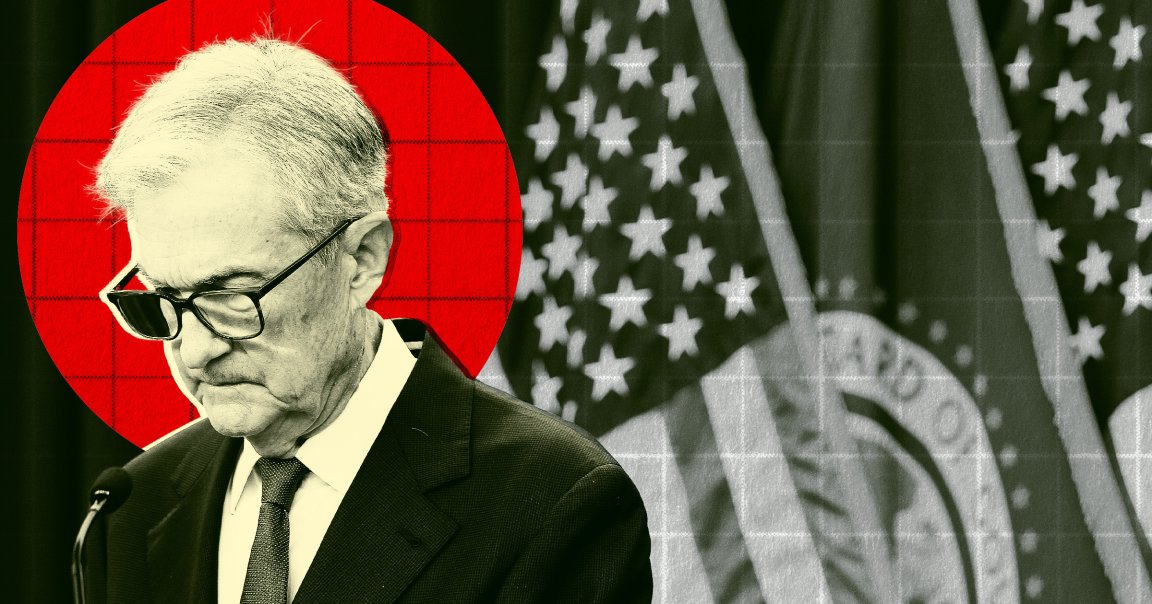
One of the key questions swirling around economics circles is the effect artificial intelligence will have — or perhaps is already having — on the job market.
While most tales of “AI automation” are anecdotal at best, preliminary data appears to show at least some level of job market disruption for young workers in fields vulnerable to the current capabilities of AI software.
Whether or not AI is actually taking those jobs is another question. Real-world performance of the software remains dreadful, leading to a number of automation disasters — in fact, data shows that AI rollouts is now plummeting across major companies. There’s also ample reason to believe that businesses executives are using AI as cover for otherwise typical outsourcing and downsizing strategies.
In short, AI automation is a huge grey area caught between hyped up tech PR on the one hand and an objectively dismal job market on the other.
Muddying the waters even further is US Federal Reserve chair Jerome Powell, who said at the conclusion of the Fed’s September meeting that he believes AI is effecting the labor force — at least to some degree.
“I think my view, which is also a bit of a guess, but widely shared, I think, is that you are seeing some effects but it’s not the main thing driving it,” he said, with a dizzying number of qualifiers.
First reported by Business Insider, Powell said his take is that AI is making the job market more challenging for recent college grads, though he was wishy-washy on how significant its impact really is.
“It may be that companies or other institutions that have been hiring younger people right out of college are able to use AI more than they had in the past,” the Fed chair said. “That may be part of the story. It’s also part of the story, though, that job creation more broadly has slowed down.”
Whether that’s true or not, the fact that Powell believes it is significant — he’s now among the most prominent US officials to comment on the question of AI automation, as BI observed.
For months, the central banking authority has faced a major contradiction in balancing the need to cut lending rates with the need to keep inflation from spiraling out of control. It’s a situation which could lead to a dreaded “stagflation” crisis, which would arguably be far worse for workers than AI currently is.
The Fed finally issued a small rate cut just days ago after a tumultuous summer, though the question remains whether more are to come, when they might arrive, and what effect Powell’s AI anxiety will have on those decisions.
As Powell himself put it following the September meeting, “it’s not incredibly obvious what to do.”
More on labor: Man Applies for Job, Sits for Interview, Then Realizes They’re Trying to Peddle “Mock Interviews With an AI Interviewer”